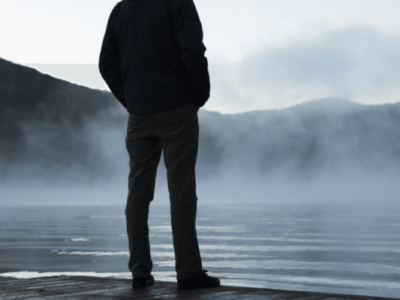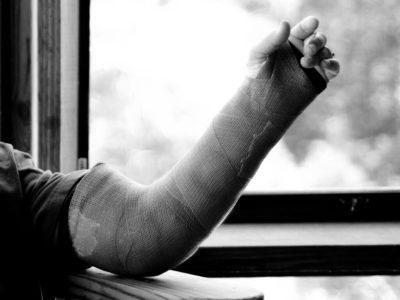I first experienced mental health problems in my sophomore year of high school. I went through a bout of depression for two years, but came out of it pretty easily, chalking it up to a bad breakup. The rest of high school and my freshman year of college went by without issues. In fact, I’d never felt better about myself or life in general. When my sophomore year came around, though, I started noticing changes in myself.
I started questioning whether my friends really liked me or if they just hung out with me out of habit. Every social interaction made my heart race. Did I say the right things? Did people think I seemed boring? Or awkward? Eventually I stopped enjoying being around my friends just because of the anxiety it caused.
The way I saw myself changed as well. Nothing about me seemed good enough. My grades, my appearance and even the way I walked fueled my deep sense of inferiority. I would fixate on these things until I couldn’t breathe, my limbs felt weak underneath me and I worried I’d suddenly scream out and never stop. I couldn’t talk to anyone, look at myself in the mirror or step outside without panicking. For a while I tried to avoid these things altogether just to keep my anxiety under wraps.
Isolating myself probably exacerbated the problem instead of helping manage it. I started blacking out during casual conversations. I couldn’t get dressed in the morning without suffering a complete physical and mental breakdown. Sometimes just looking at a homework assignment made me burst into tears. I tried expressing to friends how terrified I felt just to face the day, but even now they don’t understand the severity of what I go through.
It became clear that I needed to find outside help for what I felt. I went to my school’s Counseling and Psychological Services (CAPS) for a walk-in screening. They handed me a tablet and asked me to fill out a questionnaire describing the reason for my visit. When they saw my answers, they asked if I wanted to skip the screening and go straight to a full one-on-one appointment with one of the CAPS counselors. Did whatever I was going through really seem that serious?
I started seeing a counselor every two or so weeks. Our conversations focused mostly on my anxiety. Still, I didn’t feel better. I desperately wanted to try anything that might make me feel like myself again. So when my counselor recommended I join a support group, I said, “Sure.”
I met with the woman who leads the support group to see if it would be a good fit. She gave me some surveys to fill out and asked me all the same questions as my counselor. “I see you experienced some difficulty with anxiety in high school. Can you tell me more about that?” she said. “You began to notice symptoms this past September, correct?” Then, “So you’ve been seeing a counselor here for anxiety and depression, yes?”
“No,” I told her. “Just anxiety, really.”
Confused, she looked down at my file. She laughed a little and said, “No, from the looks of it you’re having a severe major depressive episode.”
Those words rattled in my head the rest of the day. Severe major depressive episode. That’s f–king terrifying to hear. Especially when you don’t see it coming. I knew when I went to CAPS that I was suffering from some form of anxiety, so it didn’t jar me to hear someone diagnose me with it. But severe major depressive episode?
Whatever mental health problem I had, I started combatting it from all sides. I went to individual and group therapy. I did all the things people say will help anxiety and depression, like exercising, eating well and reaching out to friends. My family supported me. I did everything right. But I still felt worse every day.
For months I cycled between hopelessness and anger. Honestly, I still do. I wondered why I should continue therapy if I still feel just as alone as before. I wondered why I should bother taking care of myself. But these moments always passed. When I feel this way in the future, I know it will pass, too.
I first walked into CAPS four months ago and I still don’t feel like the person I was my freshman year. Some days I can’t get out of bed, and others I almost bowl over my English professor because I need to run out of lecture to cry. I experience panic attacks in front of entire classrooms of people and doctors still throw out names of scary-sounding illnesses I might have.
But I don’t think the fact that I haven’t gotten better yet means I won’t in the future. I would certainly be worse off if I’d never asked for help in the first place. And even though I feel worse than the day I went to CAPS, I can see I’ve made progress in coping with my depression day-to-day. Sometimes a friend will commend me for fighting as hard as I have and let me know that they see it, too.



















